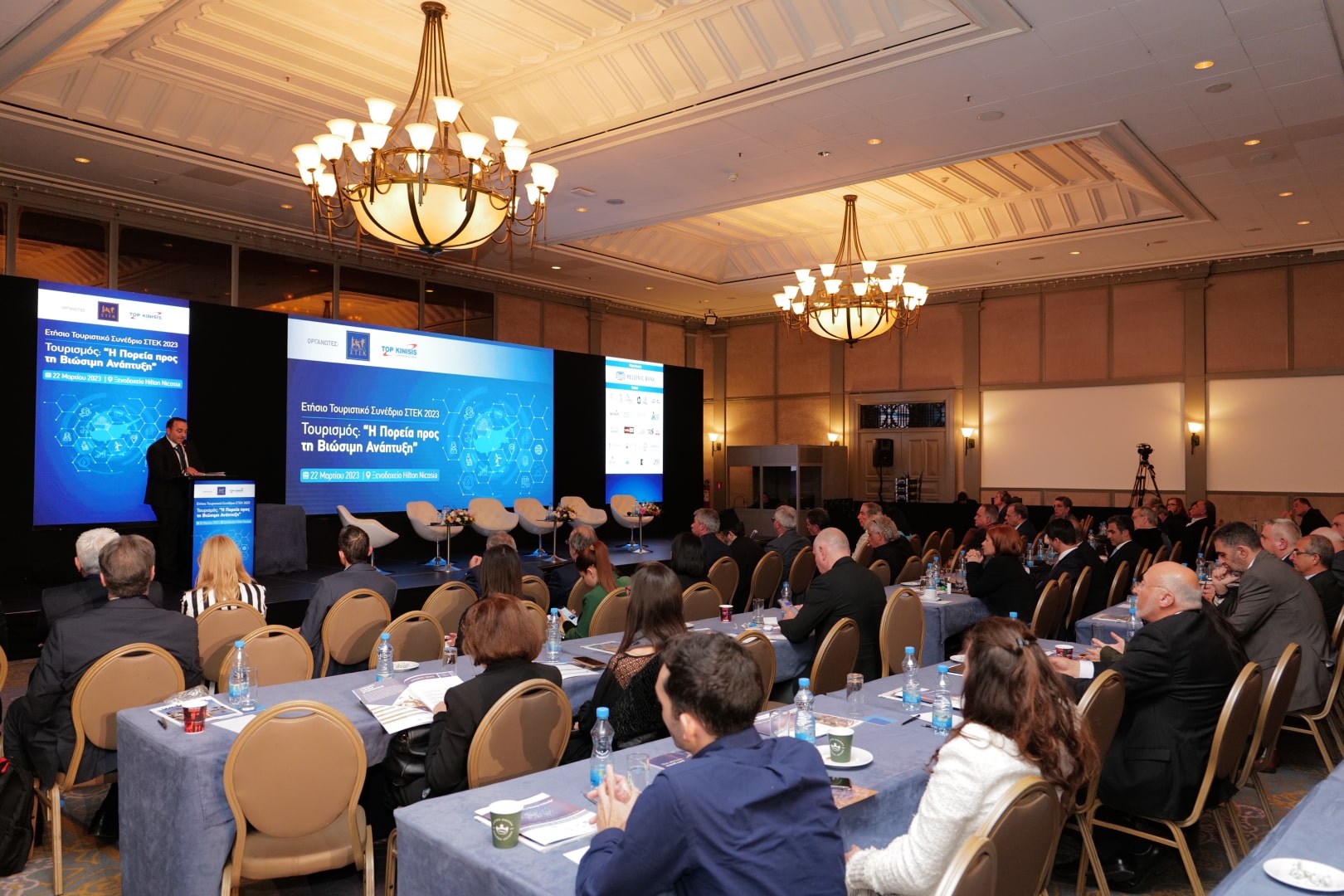Cypriot tourism will have to adapt to new regulations and modern traveller preferences
Cypriot tourism professionals are turning their focus on sustainability, with a view to aligning with climate-friendly directives over the coming years and ensuring that any projects are compliant with green transition initiatives.
Tourism stakeholders, as well as other professionals, discussed such issues at the annual conference held by the Association of Cyprus Tourist Enterprises (Stek).
This year’s conference, which took place this week in Nicosia, was specifically structured around the industry’s transition towards sustainability.
Investment criteria and the need for change
The head of commercial banking at Hellenic Bank Andreas Papadopoulos said that environmental, social, and corporate governance (ESG) will officially be regulated by the EU, with ambitious targets having been set for the reduction of emissions through the Fit-for-55 package and the Green Deal.
He explained that the EU has created measurable factors that will determine whether an investment will be considered to be sustainable.

The Association of Cyprus Tourist Enterprises annual conference
These investments, he said, must be implemented in the right way so that they benefit from any regulations and in particular be consistent with two goals, climate change mitigation and climate change adaptation.
These, he explained, are the compensatory measures that an investment must take into account to limit and adapt to climate change.
“Regulations that place investments into classes and types are now a reality. If an investment is financed by a bank, then this borrowing will fall under the green asset index,” he said.
Moreover, Papadopoulos explained that the hospitality sector is very exposed to ESG since it encapsulates real estate, water conservation, electricity and waste reduction. In the social sector, there are other applicable issues, including gender equality, inclusion and sustainability management.
“With the right investments we can reduce our costs and be considered a green business,” he said.
Nicolaas Willem Visser, secretary of the board of trustees at the TUI Care Foundation, referred to the charity’s actions to promote sustainability in various destinations.
Regarding Cyprus, he noted that in collaboration with the Cyprus Sustainable Tourism Initiative (CSTI), they have set a goal of creating six beaches without plastic waste by 2025, as well as informing people about the issue of reducing plastic waste.
He added that the goal of this initiative is to reach 300 partners, who will support the project’s information campaign.

Meanwhile, Markos Gianisopoulos, regional director of the Expedia Group, presented the results of the Traveler Value Index 2023.
He pointed out that 46 per cent of participants stated that the need to travel is more important now than when compared to the pre-pandemic era.
In addition, 43 per cent of participants said that they both intend and are planning to increase their travel budget in 2023. The same assessment was shared by tourism industry professionals who also participated in the survey.
However, the survey highlighted that 90 per cent of travellers are looking for travel options that support sustainability, while 50 per cent of travellers said that they are willing to pay more for a destination that supports sustainability.
He added that the focus on sustainability extends beyond travel itself, as travellers now focus on issues of equality and inclusion.
Labour shortages continue to plague businesses in the tourism sector
Demetris Sarris, director of the KES Research Centre, presented the results of a survey with a sample of 59 managers from 67 hotel units in Cyprus with a capacity of 18,500 beds.
The survey’s findings highlighted the lack of staff as the most significant challenge faced by hotels, primarily those in the more upscale end of the market.

Additionally, he noted that there is a “substantial shortage” of Cypriots in the staffing of the domestic tourism industry, which is considered to be a major blow to the tourism product provided.
According to the research, the main reasons for the lack of staff are the seasonality of the profession, the lack of qualified staff, the salary provided and the working hours required.
Moreover, the respondents indicated that the increase in part-time employment is not seen as an incentive to attract local staff, while the median values of permanent staff shortages for the summer season range from 5 to 50 people.
Also important is the finding that the recruitment of staff from third countries seems to help in meeting the needs of the tourism sector for 2023, however, the solution appears to lose any momentum after 5 years.
The use of international standards and the future of aviation
Elsewhere, the general manager of the Cyprus Organisation for Standardisation and Cyprus Certification Company Athena Panayiotou referred to the many standards that exist for sustainable tourism, adding that “standards issues in Cyprus are far above all other markets”.
She explained that standards, which are specifications prepared by experts in the field, are tools that are there to help industry professionals to achieve the sector’s sustainability goals.

Panayiotou stressed that “green development does not lead to sustainability by itself” and underlined that “the internal, social and economic aspects are what contribute to the sustainability of a hotel unit”.
Senior Director of Aviation Development, Marketing & Communication of Hermes Airports Maria Kouroupi spoke about how the aviation sector is evolving in terms of sustainable development and how Cyprus is affected.
“The aviation sector is responsible for only 2 per cent of emissions internationally,” she said.
“One reason is that in the last 50 years, there has been new technology in aircraft that has helped to drastically reduce pollution,” she added.
Regarding the use of biofuel (SAF), Kouroupi said that it still has many challenges before it becomes viable.
“It is not produced in sufficient quantities and is therefore expensive, while many tests are still being carried out so that the energy needed for the production of SAF is less than the energy it will provide”, she said, noting that its use by 2023 is expected to be limited.







Click here to change your cookie preferences